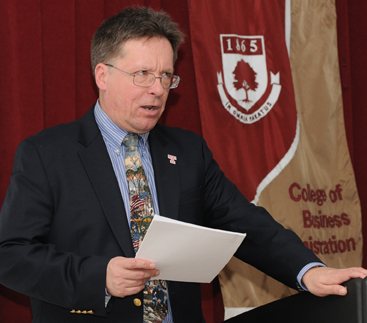Thursday, Mar 4, 2010
One hundred fifty years ago, well before there was Black History Month, key passages in the African-American narrative were being authored by black pioneers in a struggle to earn their freedom from slavery. Stories from the Civil War, which pitted north against south in the bloodiest conflict ever seen by the American military, are still rife with examples of neighboring citizens taking up arms against each other, but relatively little is told of the 54th Massachusetts Regiment, the first black infantry to be formed on United States soil.
Composed mostly of freed blacks from the areas around Massachusetts and Pennsylvania, the 54th Regiment had the eyes of the nation upon them after being organized by Massachusetts Gov. John A. Andrew in March 1863. The 54th’s signature achievement, the assault on Fort Wagner in Charleston, S.C., later that year was colorfully detailed in the 1989 feature film Glory, starring Morgan Freeman, Matthew Broderick and Denzel Washington.
Glory also featured the big-screen debut of Dr. Gregory J.W. Urwin, who has done little in the way of acting to rival the highly decorated Freeman and Washington, but whose expertise as a historian not only landed him his role, but his job as an adviser and troop-trainer for the film.
In celebration of Black History Month, Urwin, now a professor of History and the associate director of the Center for the Study of Force and Diplomacy at Temple University, visited Rider on February 24 for An Evening of Glory, discussing his role in assembling actors and Civil War re-enactors for the film, prior to a screening of the film.
An Evening of Glory was cosponsored by the Rider University Veterans Association, the Black Student Union, and the Center for the Development of Leadership Skills.
Urwin was working as a professor of History at the University of Central Arkansas (UCA) in 1988 when he heard about the planned motion picture about the “Men of the 54th.” The film’s studio, TriStar Pictures, had allotted a mere $18 million to make the movie, a relative pittance for an epic of Glory’s magnitude, and its producer, Freddie Fields, was on the lookout for ways to stretch his budget.
Urwin, who was also active in the Civil War re-enactment movement, proposed the idea of using re-enactors to Fields, who had produced such Hollywood blockbusters as American Gigolo, starring Richard Gere, and Looking for Mr. Goodbar, with Gere and Diane Keaton. “It was the best way for him to remain on budget,” explained Urwin, who promised to raise 200 African-American re-enactors to play soldiers from the Union army. “They would come ready with props – uniforms and artillery – and already be organized into military units.”
Fields accepted, and one of his original problems – that an authentic reproduction outfit cost $1,000 – was transferred to Urwin. The historian, however, was undeterred. “The project appealed to me on a number of levels. I loved the idea of making a movie where black and white came together to promote freedom,” Urwin explained of his plans to recreate the 54th Regiment, which had been directed by white commanding officers. “And it was also an excellent public relations opportunity for a southern university that had been integrated for less than 20 years.”
Indeed, while the Civil War has been waged more than 120 years prior, some old resentment and mistrust still burned in the minds of some. “I received anonymous letter reminding me of the example of John Brown and what happened to him when he gave guns to Negroes,” Urwin revealed, recalling the abolitionist who was killed during an armed raid at Harpers Ferry, Va., in 1859.
Still, admittedly a bit star-struck by his first brush with Hollywood, the film and history buff forged ahead in his quest to round up sufficient funds and men to take to Jekyll Island, Ga., to film Glory in March 1989. He secured more than $7,000 in funds from the UCA Student Senate to help outfit volunteers, and solicited help from private citizens as well as local businesses, but one issue Urwin had difficulty solving was the dearth of interested black participants.
“There really were only a handful of African-Americans involved with Civil War re-enactment at the time,” he said. One who was, however, was Ronnie Nichols, a friend of Urwin’s who was active in the 1st Arkansas Regiment of African Descent re-enactors, who became an invaluable asset to the project. Nichols was able to use his connections to flesh out the required number, while Urwin helped round out the group with UCA students and even a number of homeless citizens of Savannah, Ga., who were happy to receive their small per diem pay.
Urwin’s band of “soldiers” was ultimately assigned to play Company “E” of the 54th Regiment, and wound up being the second-largest unit assembled for the film. Throughout many of the units, the hot humidity of the Georgia summer and a number of other factors contributed to tensions among all these quasi-extras, according to Urwin.
“Fatigue and the heat bred some racial tensions,” he recalled. “White men barking out orders throughout long days, plus frequent periods of long inactivity led to some clashes between the white ‘officers’ and black ‘troops,’ but things remained harmonious in Company ‘E.’”
Urwin said the final production contained some historical inaccuracies, such as the character played by Morgan Freeman, that of Sgt. Maj. Lewis H. Douglass, son of statesman and abolitionist Frederick Douglass. “Morgan was 51 years old in 1989, but Lewis Douglass was only in his 20s during the time we portrayed,” he detailed.
In the end, Glory was a hit with the Academy of Motion Picture Arts and Sciences, taking home two Oscars, including Best Supporting Actor for Denzel Washington and Best Cinematography, and also succeeded in shining light on this little-known chapter in Black History.

